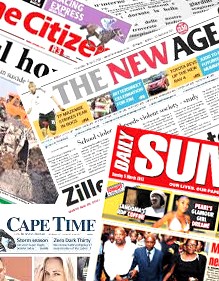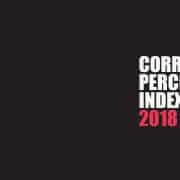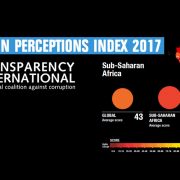|
Getting your Trinity Audio player ready...
|
 Media freedom in South Africa is increasingly threatened and an urgent intervention is needed to deal with the declining independence of the press. This was the general feeling shared by delegates at the Freedom of Expression Institute (FXI) media freedom symposium, held last Thursday, 14 August, in Johannesburg.
Media freedom in South Africa is increasingly threatened and an urgent intervention is needed to deal with the declining independence of the press. This was the general feeling shared by delegates at the Freedom of Expression Institute (FXI) media freedom symposium, held last Thursday, 14 August, in Johannesburg.
The prevalence of corruption is linked to freedom of expression in the press, which is seen as an important tool to expose corruption and abuse of power in governments, and to give a voice to minorities and groups facing neglect or discrimination.
Data from a study published in November 2012 in the International Journal of Press/Politics, and titled The Media’s Role in Fighting Corruption: Media Effects on Governmental Accountability, confirm previous studies that “emphasise that a free media might be a significant check on corruption and suggest that mass media are important determinants of political accountability”.
The data gathered, concludes the study, suggest that as countries achieve more press freedom and higher levels of electoral participation, their corruption levels tend to decrease.
Media freedom declining in the region
FXI executive director Phenyo Butale told those in attendance at the symposium that his organisation, together with the Media Institute of Southern Africa (Misa) sought a discussion on the topic of media freedom by practitioners.
“We have to ask ourselves, did we go wrong somewhere?” said Butale, adding that the media in South Africa seemed to enjoy a sense of independence and freedom post 1994 that was brought on by a strong Constitution and such interventions as the Windhoek Declaration, which promoted independent and pluralistic media.
But the course that the media had been on had changed over the years, said Butale, and it is citizens who suffer when the press is muzzled. He added that the FXI sought to recapture the glory within which the press used to operate.
Zoe Titus, regional director of Misa, referred to the current situation in Swaziland – where a newspaper editor and a human rights lawyer were convicted on a contempt of court charge for publishing articles that questioned abuse of power by a judge. She spoke of the measures used around the world to determine press freedom, saying that the various indices are widely used by organisations that have a media freedom interest, but are often met with scepticism from political leaders, be it those who are in government or those opposing governments.
“The indices are used for different purposes. They play an important role in national media policies,” said Titus.
“Whenever a country regresses (in ranking) in terms of respect for certain freedoms, freedom of expression is always the first to go,” said Cathal Gilbert, project director for international freedom watchdog Freedom House.
Freedom House’s annual Freedom of the Press report gives South Africa a score of 33 points, which renders it among countries that with partially-free media. “We look at freedom very broadly in terms of civil liberties and political rights and freedom of expression is a subset of that,” explained Gilbert.
South Africa is one of 22 countries in sub-Saharan Africa that found themselves in the partly-free category of the survey, while only four were rated free and the rest (23) not free. Over the years since its democracy, said Gilbert, South Africa has regressed from being one of the few free countries in the region.
According to Freedom House, “South Africa’s recent trend of decline was halted as the controversial Protection of State Information Bill—which would have allowed government officials and state agencies to withhold a wide range of information in the national interest or on national security grounds—remained stalled after President Jacob Zuma failed to sign it in 2013”.








